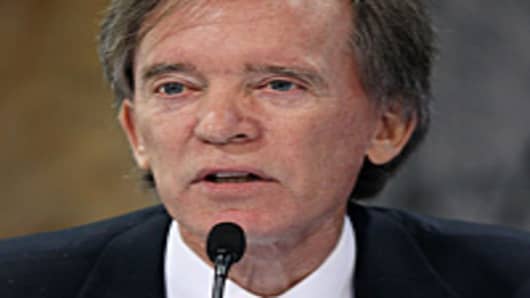Bill Gross, founder and co-chief investment officer of Pacific Investment Management Co., has been letting out bearish growls for months. In February, he took Pimco’s Total Return Fund’s holding of Treasuries down to zero. So this is just a tiny step further into the plan of the cave bear.
What’s behind this move? Well, you’ll hear all sorts of explanations—from market watchers and Gross himself. Too much debt, fear of inflation, foreigners exiting the market, the desire for yield after too many years of low interest rates.
Perhaps the most popular explanation is the coming exit of the Federal Reserve—which has been buying government bonds as part of its quantitative easing strategy—out of the market.
But some credit market insiders I spoke with say another factor should be taken into account: the debt ceiling fight.
“This is going to occur this summer—right when the Fed is implementing the QE2 exit strategy—and its going to scare off investors, both foreign and domestic,” one credit market veteran who spoke on the condition of anonymity said.
The idea is that the fight over the debt limit raises the possibility that Treasuries are not 100% safe—that U.S. government debt actually involves credit risk the way the debt of every other country on earth does.
Even if you think that these fears are overblown, it might make sense to short Treasuries going into this summer—with hopes of covering when the debt ceiling fight gets under way and the Fed exits.
But perhaps there is room for caution about this trade. It is so widely viewed as the right thing to do that it should set off all contrarian alert systems. Anything that becomes conventional wisdom on Wall Street usually turns out to be dangerous, wrong, or dangerously wrong.
____________________________________________
Questions? Comments? Email us atNetNet@cnbc.com
Follow John on Twitter @ twitter.com/Carney
Follow NetNet on Twitter @ twitter.com/CNBCnetnet
Facebook us @ www.facebook.com/NetNetCNBC



